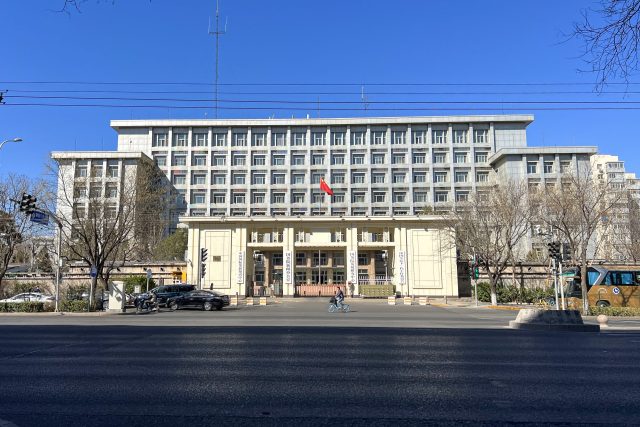A mammoth document both praises the CCP’s work in the security field and calls for a more severe repression of groups identified as national security threats.

The State Council Information Office released the white paper “China’s National Security in the New Era” on May 12, 2025. It is a mammoth text of more than 22,000 characters. It includes both propaganda and guidelines about national security.
The propaganda emphasizes “China’s efforts to mitigate risks and promote common international security.” The world, the White Paper says, stands at a historical crossroads amid new turbulent changes. The Asia-Pacific region is highlighted as a strategic area facing significant security challenges. The document emphasizes “China’s role in promoting peace and stability in the region.” It claims that China’s political stability and resistance to internal and external threats are the keys to guaranteeing security in the whole macro-region.
The White Paper lists seven priorities:
1. “Grasping the overall situation” with a comprehensive approach to national security, covering various fields such as politics, military, economy, and technology.
2. “Implementing the purpose of people’s safety.”
3. “Persist in putting political security first.” Nothing is more important than maintaining the leadership of the CCP and the socialist system.
4. “Adhere to the principle of safeguarding national interests”: protect China’s core interests, including sovereignty, territorial integrity, and economic development.
5. “Preventing and resolving national security risks.” Four main such risks are listed: terrorism, “religious extremism,” “separatism,” and pandemics.
6. “Promoting common international security” through agreements for security cooperation with as many countries as possible, also aimed at securing the extradition of Chinese who escape abroad.
7. “Strengthen the Party’s absolute leadership over national security work.”
These aims, according to the White Paper, can be achieved through five main tools:
1. “Maintaining the Party’s ruling status and the socialist system.”
2. “Improving people’s sense of progress, happiness, and security.” There will be no national security if the propaganda fails to persuade citizens that severe security measures suit them.
3. “Ensuring high-quality development.” The White Paper repeatedly emphasizes the close connection between economic development and national security. Without economic growth, the populace will not support national security.
4. “Maintaining national territorial integrity and maritime rights and interests.” The White Paper alludes to the disputes with the Philippines and others about Pacific islands. It also promises a severe crackdown on “separatism” in Tibet, Xinjiang, and Inner Mongolia.
5. “Ensuring safety and reliability in emerging areas.” National security should extend to artificial intelligence and biotechnology.
The White Paper praises the CCP’s achievements in national security and proposes China as a model for other countries. At the same time, it indicates that in a volatile international situation, international and domestic threats are growing, and the repression of groups representing a national security risk, including those accused of “religious extremism” and “separatism,” should become even more severe.
Source: Bitter Winter












